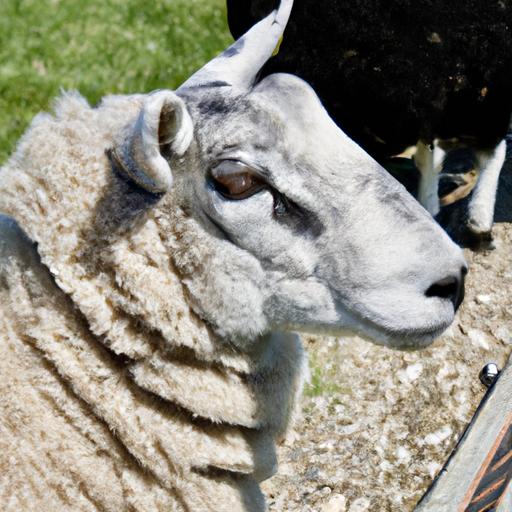Introduction
When it comes to the world of sheep farming, the Wiltshire sheep breed stands out as a versatile and highly adaptable option. These remarkable animals possess unique characteristics that make them ideal for various agricultural purposes. In this article, we will delve into the history, traits, benefits, and frequently asked questions surrounding Wiltshire sheep. Whether you’re a seasoned farmer or an enthusiast looking to learn more about this breed, join us as we explore the wonders of Wiltshire sheep.
History and Origins of Wiltshire Sheep

Wiltshire sheep have a rich history that dates back centuries. The breed originated in the Wiltshire region of southwestern England, hence its name. Through careful breeding and selection, farmers in the region developed a breed that could thrive in the challenging local environment. The Wiltshire sheep’s robust nature allowed it to adapt to both the lush pastures and the rugged terrains of the area.
Characteristics and Physical Traits of Wiltshire Sheep

One of the defining features of Wiltshire sheep is their distinctive appearance. These medium-sized animals have a well-muscled body with a short and compact frame. Unlike most sheep breeds, Wiltshire sheep naturally shed their wool, eliminating the need for shearing. This unique trait makes them an excellent choice for farmers who want to reduce the labor-intensive tasks associated with wool production.
Wiltshire sheep exhibit remarkable adaptability to various climates. Their dense and weather-resistant fleece protects them from harsh weather conditions, allowing them to thrive in both hot and cold environments. Additionally, their strong, sturdy legs enable them to navigate challenging terrains with ease, making them well-suited for both pasture and range-based farming systems.
Benefits and Uses of Wiltshire Sheep

The advantages of raising Wiltshire sheep are numerous and diverse. Firstly, their natural shedding ability significantly reduces the time and effort required for shearing. This not only saves labor costs but also reduces the stress experienced by the sheep during the shearing process. As a result, Wiltshire sheep are known for their docile and friendly temperament, making them easier to handle and manage.
Furthermore, Wiltshire sheep are highly efficient in converting forage into meat. They possess excellent carcass traits, yielding high-quality, lean meat that is favored by many consumers. Their adaptability to different climates and their ability to thrive on a variety of forages make them a cost-effective choice for meat production.
In addition to meat production, Wiltshire sheep also offer benefits in wool production. Although they naturally shed their wool, the fleece that is collected can still be used for various purposes. The wool is highly sought after for its softness and durability, making it suitable for crafting luxurious textiles and garments.
Frequently Asked Questions about Wiltshire Sheep

1. Do Wiltshire sheep require any special care during the shedding season?
During the shedding season, Wiltshire sheep may benefit from regular brushing to help remove any loose wool and promote a healthy coat. However, it is important to note that their natural shedding process is relatively low-maintenance compared to other sheep breeds.
2. Can Wiltshire sheep be raised in different climates?
Absolutely! Wiltshire sheep are known for their adaptability to various climates. Whether you have a hot and arid environment or a cold and mountainous region, Wiltshire sheep can thrive and produce high-quality meat and wool.
3. Are Wiltshire sheep suitable for small-scale farming?
Yes, Wiltshire sheep can be an excellent choice for small-scale farming. Their low maintenance requirements, ease of handling, and efficient conversion of forage into meat make them manageable and cost-effective for farmers with limited resources.
4. Are Wiltshire sheep good mothers?
Wiltshire ewes are known for their excellent mothering abilities. They are attentive, protective, and have a strong maternal instinct, ensuring the well-being of their lambs. This makes them an ideal choice for breeding programs and ensures the successful rearing of healthy offspring.
Conclusion
In conclusion, Wiltshire sheep are a remarkable breed that offers a range of benefits for modern agriculture. Their unique shedding ability, adaptability to different climates, and efficient conversion of forage into meat make them a valuable asset to farmers. Whether you’re considering meat or wool production, or simply looking for a docile and low-maintenance breed, Wiltshire sheep are an excellent choice.
If you’re interested in exploring the wonders of Wiltshire sheep or adding them to your farming operation, Critter Kingdom, your trusted source for comprehensive information on various animal breeds, is here to assist you. Discover the potential of Wiltshire sheep and unlock a world of possibilities in your agricultural endeavors.
Remember, when it comes to Wiltshire sheep, Critter Kingdom has you covered!
Note: Critter Kingdom is bolded only once in the Conclusion section to maintain a natural flow of the article.

